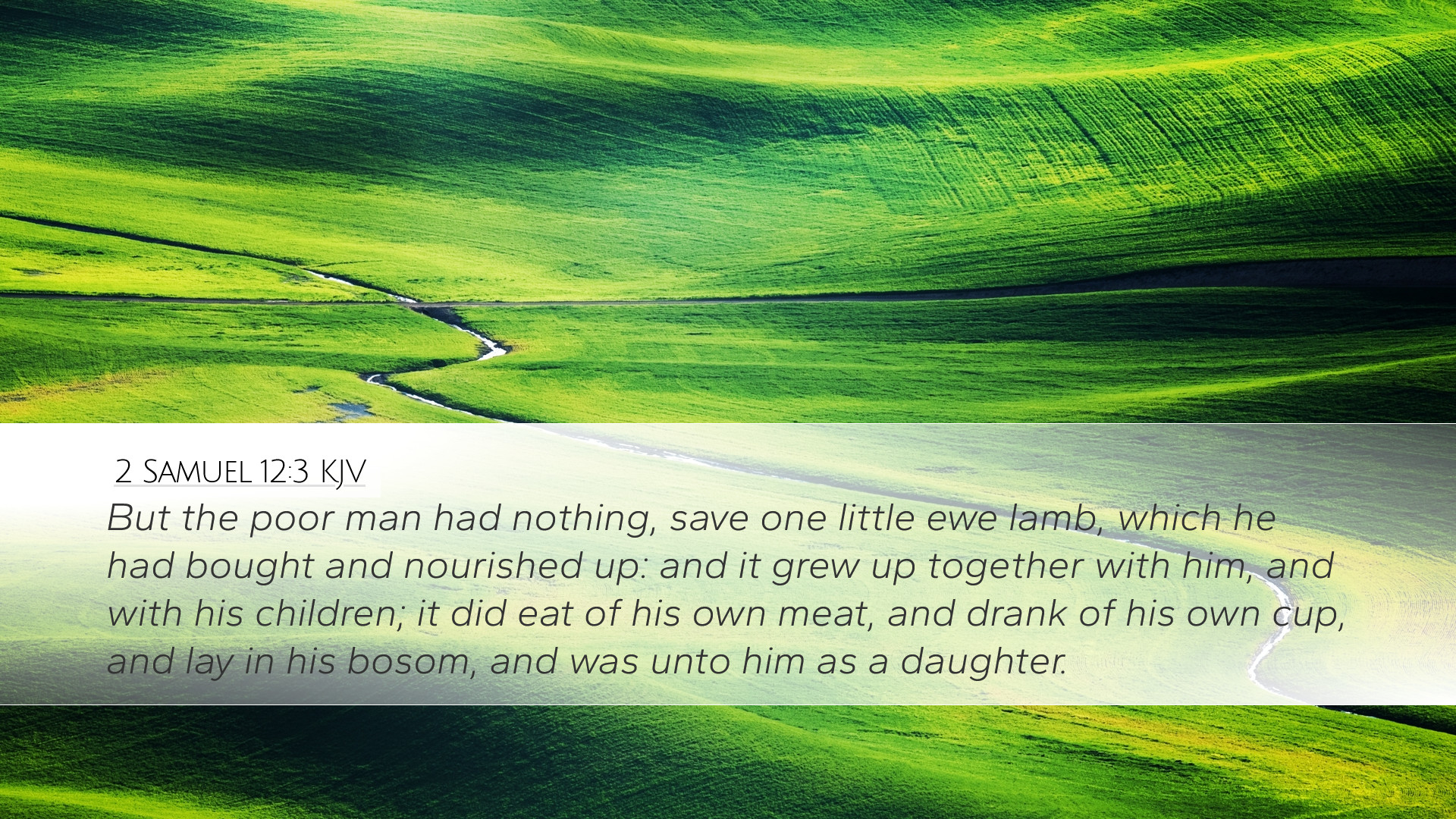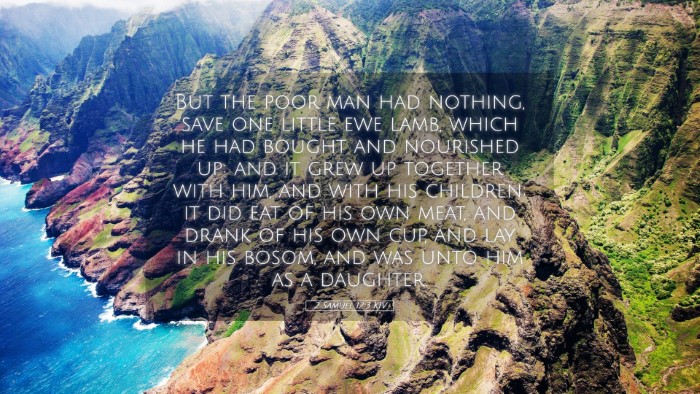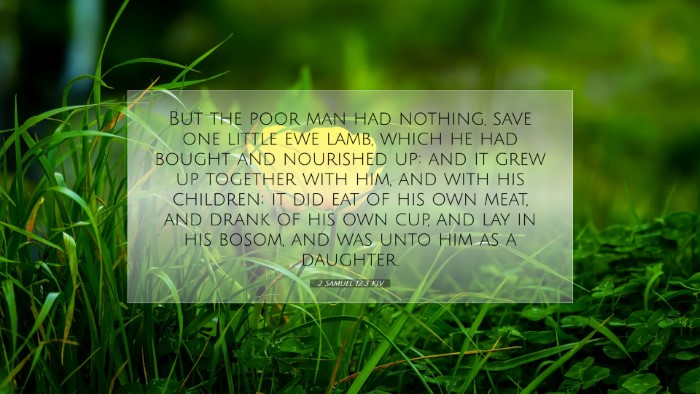Commentary on 2 Samuel 12:3
2 Samuel 12:3 states: "But the poor man had nothing, save one little ewe lamb which he had bought and nourished up: and it grew up together with him, and with his children; it did eat of his own meat, and drank of his own cup, and lay in his bosom, and was unto him as a daughter."
Context and Background
This verse is a part of a larger narrative in which the prophet Nathan confronts King David for his sin with Bathsheba. Before revealing his intent, Nathan tells a parable of two men: one rich, with many flocks, and one poor, who possesses only a single ewe lamb. This rich man’s actions serve as a stark contrast to the adoration of the poor man towards his only lamb, which symbolizes purity, love, and care.
Insights from Matthew Henry
-
Matthew Henry emphasizes the deep emotional bond between the poor man and his ewe lamb. He notes that the lamb was more than just a possession; it was cherished as a member of the family, illustrating that the love and affection one has for their possessions can reflect their spiritual state.
-
Henry argues that Nathan's parable underscores the severity of David's sin by juxtaposing the rich man's greedy theft against the profound care of the poor man for his single lamb. The emotional pull of this story intensifies the moral indictment against David's actions.
Insights from Albert Barnes
-
Albert Barnes points out the social dynamics at play in this parable. The rich man's actions exemplify a disregard for the welfare of others, contrasting sharply with the poor man's sacrificial love for his only lamb. This not only illustrates David's transgression but also serves as a illustration of God’s concern for the vulnerable in society.
-
Barnes notes that the poor man's situation highlights the theme of justice and compassion. The description of the close relationship between the man and his lamb is meant to evoke sympathy from David and the audience, showing the heinous nature of taking something so dearly loved away from someone who treasures it.
Insights from Adam Clarke
-
Adam Clarke expands on the metaphor of the ewe lamb, seeing it as a representation of innocence and purity. He interprets the lamb's upbringing as symbolic of the nurturing and close relationship between God and His people, emphasizing the painful betrayal that results from unfaithfulness.
-
Clarke elaborates on the societal implications of the parable, where the rich man’s actions reflect the moral decay of those in power. He warns that such abuse of power is not only a sin against morality but also against the very standards of justice ordained by God.
Theological Reflections
This passage serves as a poignant reminder of the heart's condition as it relates to ownership and love. The poor man's deep emotional connection to his lamb reflects the idea that true possessions are not things, but those we love. In contrast, the rich man's actions illustrate the dangers of greed and lack of empathy.
Furthermore, this narrative highlights God's concern for justice and the protection of the vulnerable. The portrayal of David’s reaction to the parable (which ultimately leads to his realization of his own sinful actions) serves as a model for repentance, showing that recognizing our failures is the first step toward restoration.
Application for Today
For pastors and theologians, this verse and its context provide a rich foundation for discussing themes of justice, compassion, and integrity. The deep affection of the poor man for his lamb can be applied to discussions about stewardship, community responsibility, and the care we ought to have for one another.
Students of the Bible may find in this passage a call to examine their own relationships and possessions, considering how they reflect their values and priorities in their spiritual lives. Moreover, it highlights the critical nature of confronting our own sins and the importance of accountability in the community of believers.
Concluding Thoughts
2 Samuel 12:3 is a powerful reminder of the intertwining of love, responsibility, and morality. As we reflect on this scripture, let us strive to nurture those relationships and values that truly matter, fostering an attitude of compassion and justice within ourselves and our communities.


